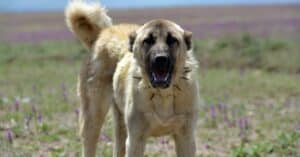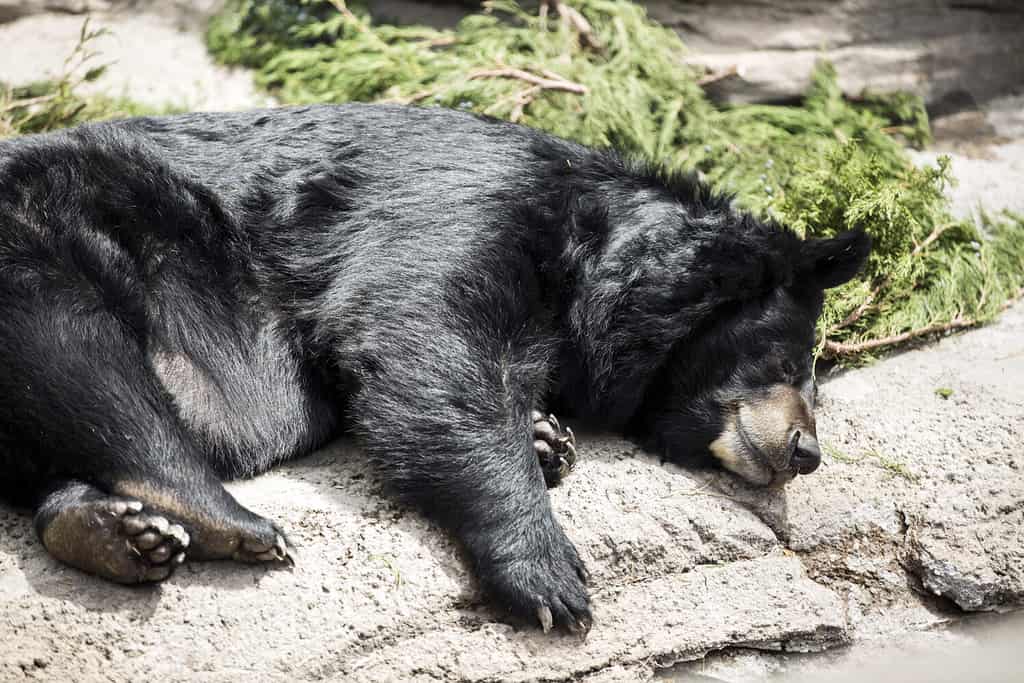
Black bears are approximately five times stronger than humans.
©Yobab/Shutterstock.com
New Jersey is a beautiful state filled with lush forests and woodlands, sandy and cool beaches, and plenty of roaming exotic animals. The residents and animals are familiar with one another, and most animals know to stay away from humans. Still, some animals (like seagulls) are brave enough to oppose humans and steal food directly from their hands.
One animal in particular has an uneasy truce with humans. There are hundreds of bears foraging across the state. Lately, the bear population in N.J. has been increasing, forcing the NJ Department of Fish and Wildlife to release statements and reports on how to handle bear encounters.
This article discusses the bears that live in N.J., where they are frequently sighted, and how one should respond to a bear encounter.
What Type of Bears Live in N.J.?
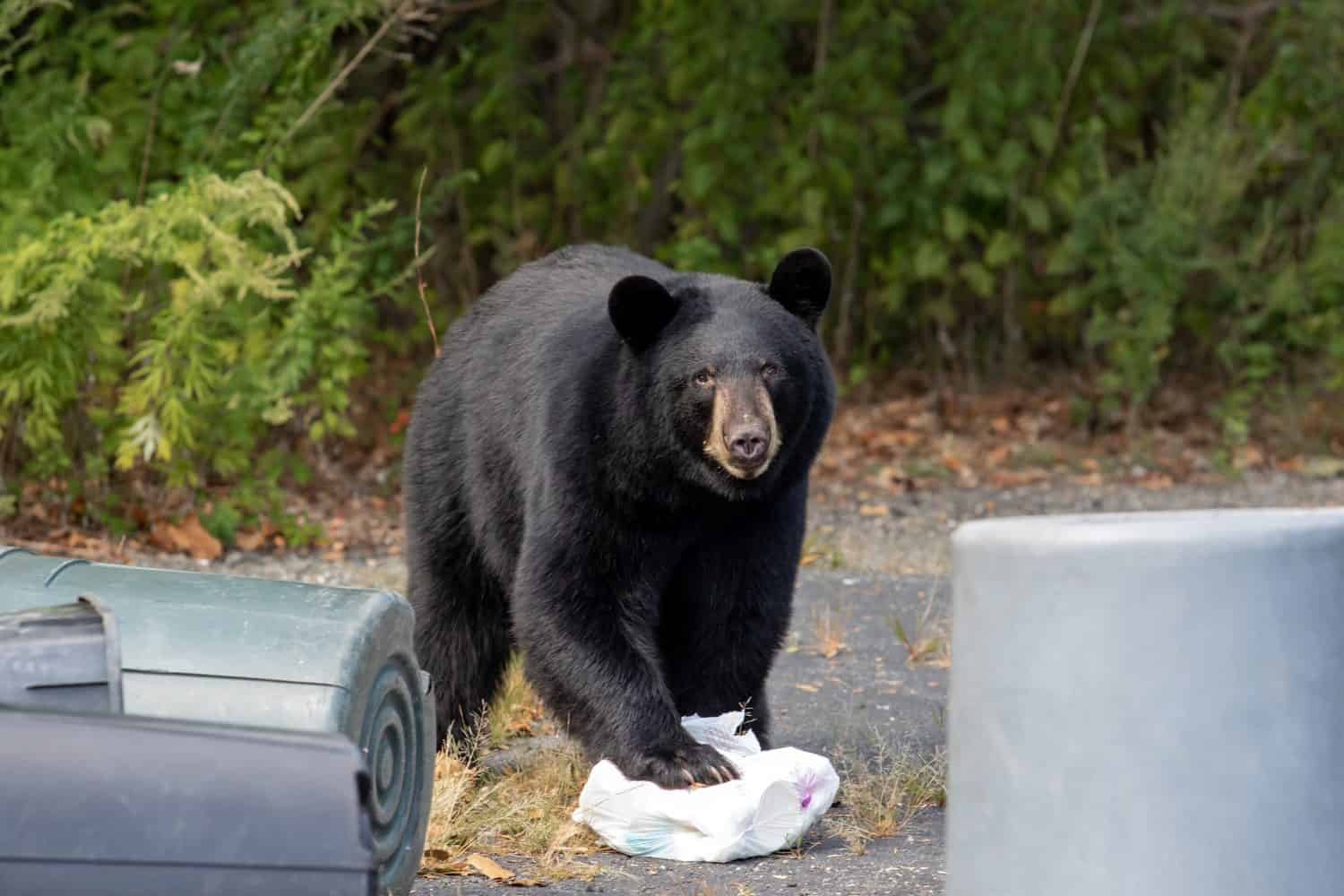
A black bear has a bite force of 600 psi.
©EleanorAbramson/Shutterstock.com
Ursus americanus, or North American black bears, are the only bears living in N.J. These bears are found in forests, woodlands, and places with dense foliage across North America. During the winter, they find a small den like a hollow tree, a small cave, or the side of a dirt hill in which to hibernate.
Black bears weigh between 220-594 pounds and reach 4-6 feet high. On average, they can live between 20-40 years. They are smaller and lighter than other bears, making them capable of running nearly 30 mph.
Black bears are omnivores, sustaining themselves on nuts, fruits, grasses, roots, bulbs, insects, rodents, young deer, carrion, and fish. They are excellent fishers, although not as adept as brown bears. Instead, black bears are excellent climbers, capable of scaling trees with ease.
Where Are Black Bears Frequently Seen?
The NJ Department of Environmental Protection (NJDEP) advocates for residents to coexist with the local black bear population.
As of 2022, NJDEP released a report detailing bear sightings across every county. According to the report, the counties with the largest black bear sightings or complaints are:
| N.J. County | Number of Bear Sightings |
|---|---|
| Sussex | 773 |
| Morris | 475 |
| Warren | 310 |
| Passaic | 207 |
| Hunterdon | 147 |
| Bergen | 74 |
The report also indicates the number of bear sightings is increasing from previous years. In total, there were 2,212 bear sightings across all counties.
When Are Bear Sightings Common?
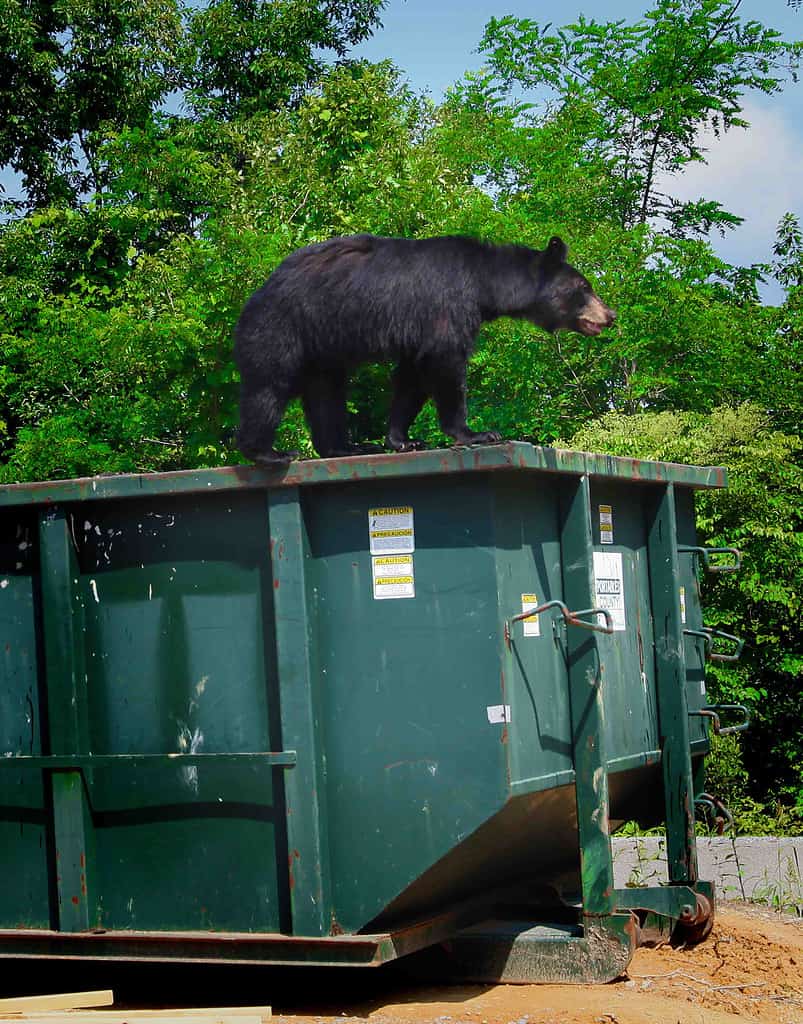
New Jersey residents constantly see garbage cans overturned by black bears.
©BeyondMyLens/iStock via Getty Images
Black bears are most active in the early morning and late evening during spring and summer. Residents complain that bears wander into backyards, damaging fences or garbage cans searching for food. The bear population has learned that humans are a constant source of food and recognize when it is safe to search garbage cans in neighborhoods, university campuses, and parking lots near the woods.
Humans are more active outdoors during the spring and summer, increasing the chances of spotting a bear.
N.J. is one of the most densely populated states in the country. As the bear population increases, the chances of seeing a bear rise.
Why is the Bear Population Increasing?
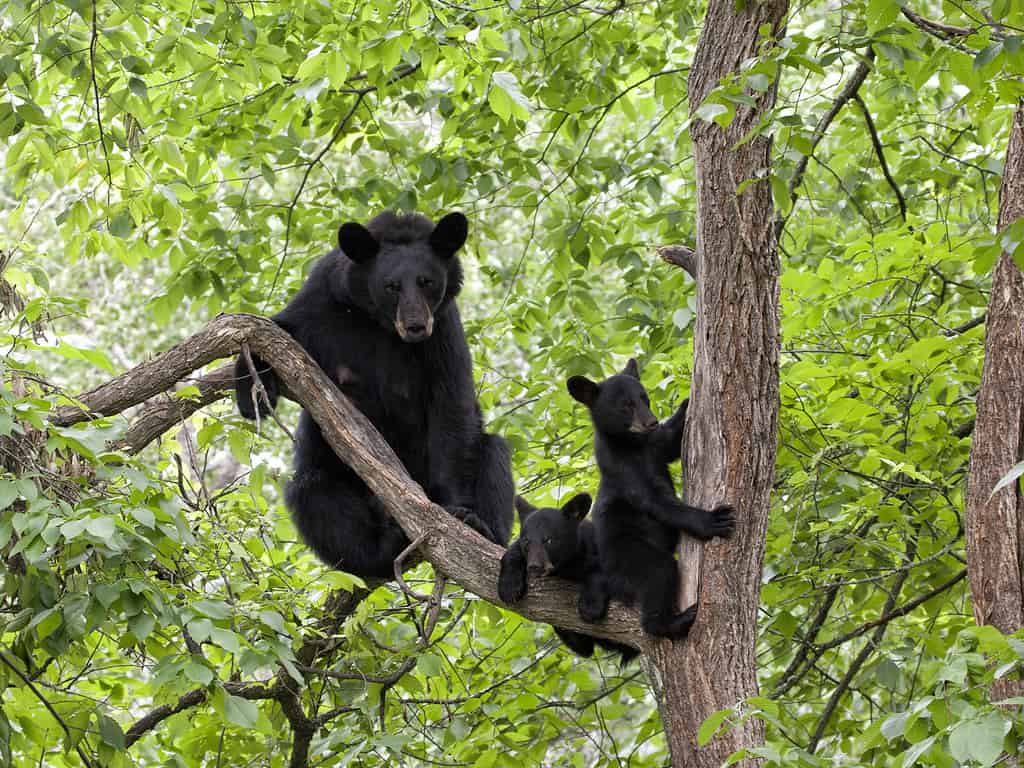
Black bear cubs are vulnerable to
mountain lions
, vultures, wolves, and coyotes.
©dssimages/iStock via Getty Images
Dense forests across N.J. provide plenty of cover and protection for the species to thrive. There is a consistent source of food thanks to environmental protection laws and humans throwing out large quantities of food.
Black bears have few natural predators in N.J., aside from humans. This allows the black bear population to grow and black bear sightings are now statewide. A few years ago, black bears were only seen in Northern Jersey where the woods are denser.
According to the NJDEP 2022 report, bear sightings have increased 182.14% since last year. Black bear damage and nuisance reports are up 203.29%.
How Does N.J. Have a Bear Population?
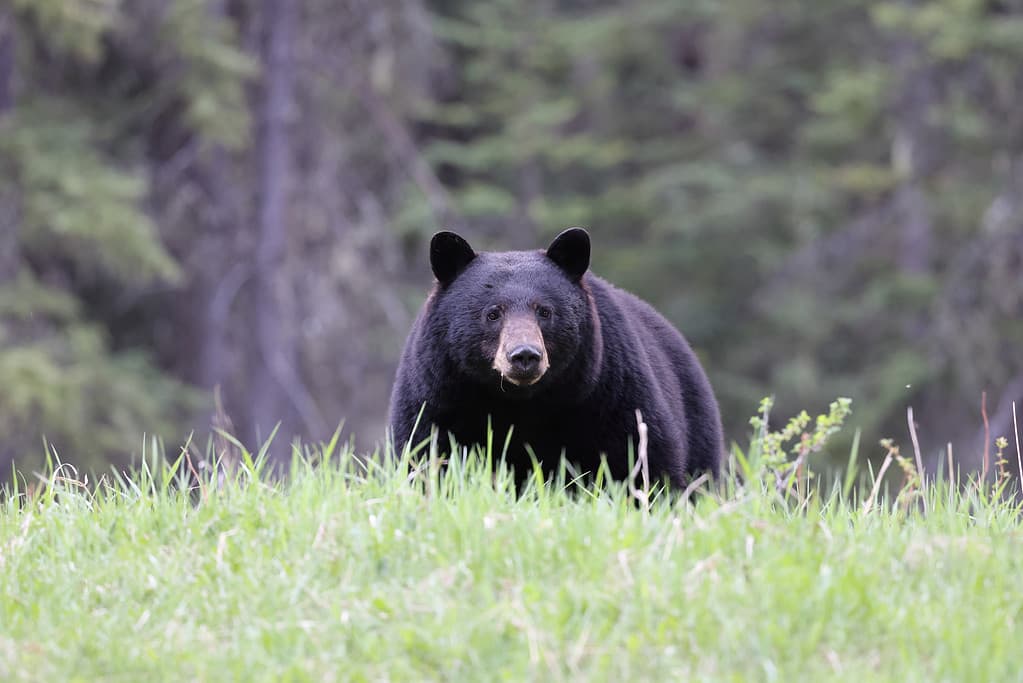
Bears are mostly vegetarians, eating mostly vegetation and supplementing their diets with meat.
©Frank Fichtmüller/iStock via Getty Images
The NJDEP has strict laws protecting the black bear population across the state. It is illegal to hunt or kill black bears unless it is during specified hunting seasons and with proper hunting and gun licensing.
Any violator wrongfully killing a bear is penalized with a $100-$300 fine per count of unlawful activity.
Recently, N.J. has implemented a five-year plan for an annual two-week hunting season on bears. Bear hunting is allowed in specifically marked zones outlined by the NJDEP. The plan will expire in 2028.
Are Black Bears Dangerous to Humans?
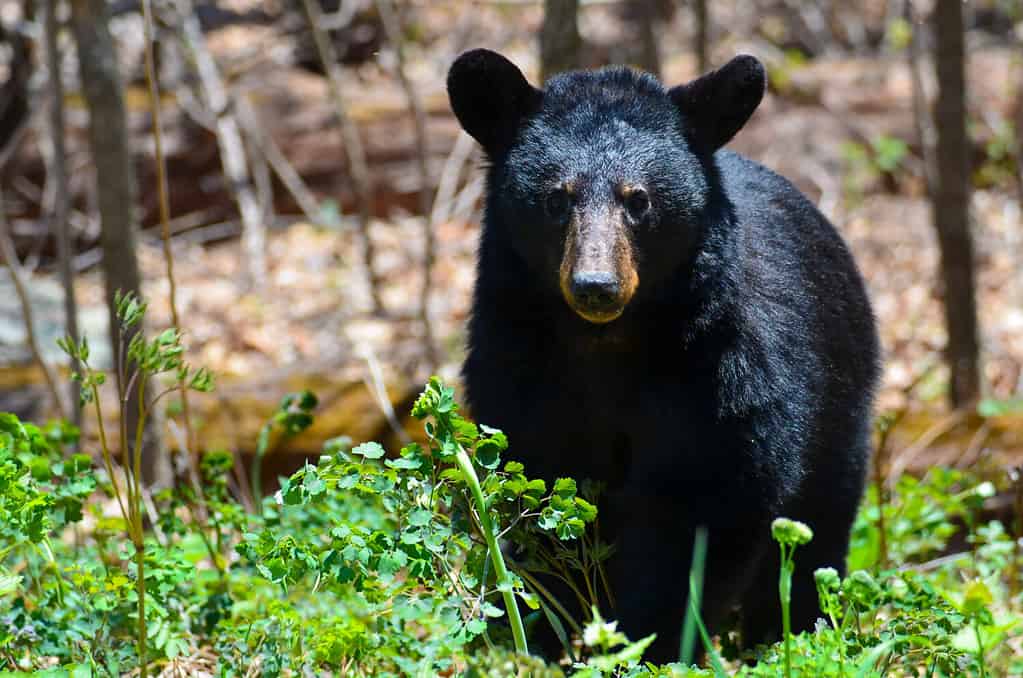
Bears seek out easy prey to conserve energy. Chasing or fighting prey may lead to injury.
©Orhan Cam/Shutterstock.com
Black bears are wild animals and should never be approached. However, black bears rarely attack humans because they are not an edible or sustainable food source. They are more likely to make a false charge, grunt, roar, or slap the ground with their paws to scare humans away so they may continue foraging in the area. These are all intimidation tactics that seldom lead to direct confrontation.
The NJDEP report states there was only one bear attack during 2022 and zero attacks in 2021. The specific nature of the attacks varies, though attacks are usually due to surprise encounters. Regardless, there have been no recent fatal bear attacks in N.J.
Reporting a Nuisance Bear
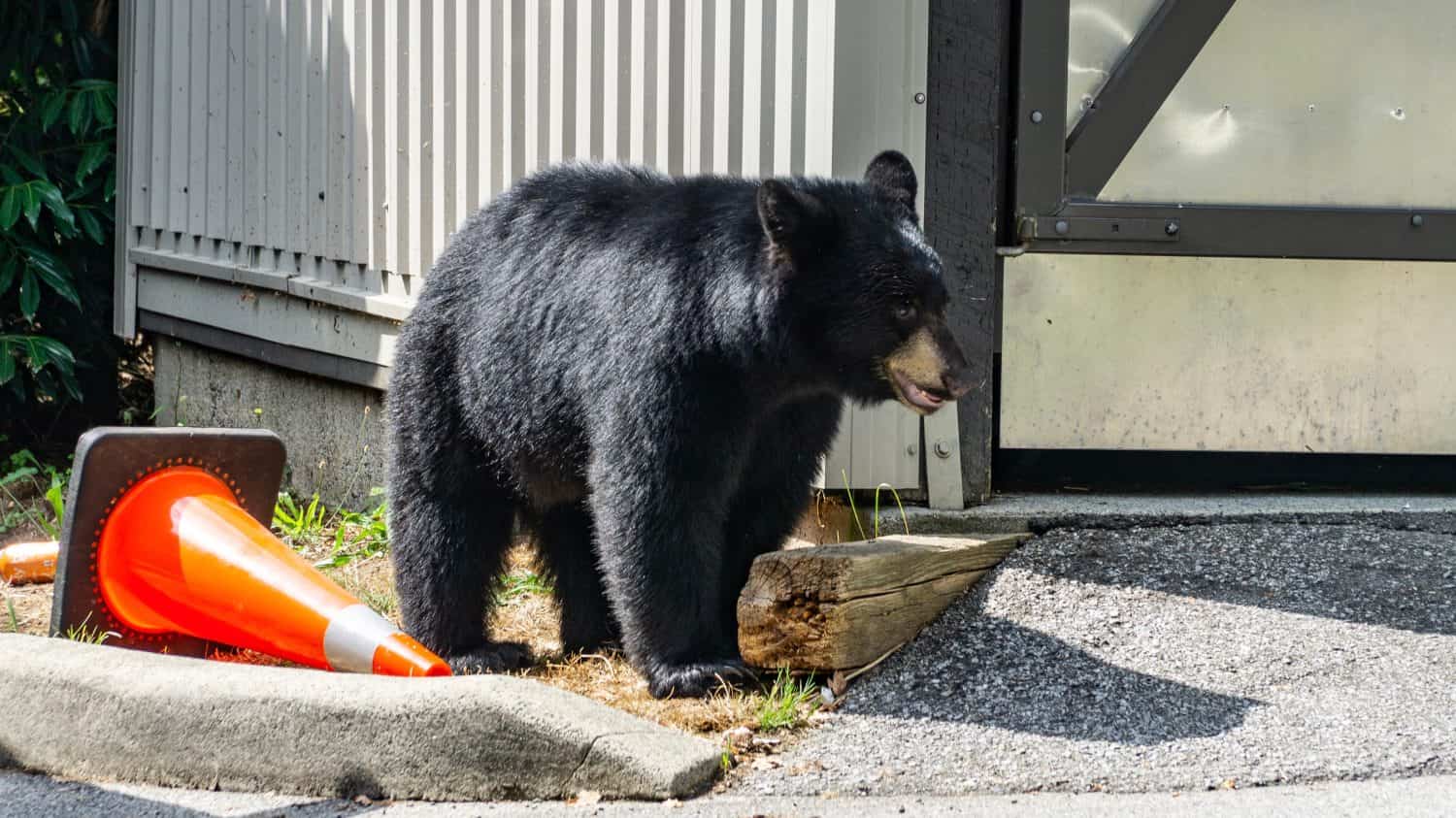
While foraging, bears cause consistent property damage to fences, garbage cans, and yards.
©Pawel Serafin/Shutterstock.com
A nuisance animal is any wild animal that may cause property damage or pose a threat to human safety. There are a growing number of reports of nuisance bear activity because of the increasing bear population.
Residents dealing with a nuisance bear should call the NJDEP’s 24-hour hotline, 1-877-927-6337. Additionally, they can go to the NJDEP website and send an email regarding the nuisance bear. All messages should include a specific location, time of sighting, and photos of the bear (if possible).
Photos of the bear help the NJDEP record bear sightings, match them with tagged bears on record, and understand potential habits, territories, or behavior in the bear population.
Additionally, call the NJDEP number to report other nuisance animal encounters.
Common N.J. nuisance animals include:
- Raccoons
- Opossums
- Skunks
- Bats
- Squirrels
- Birds
What To Do When Encountering a Black Bear
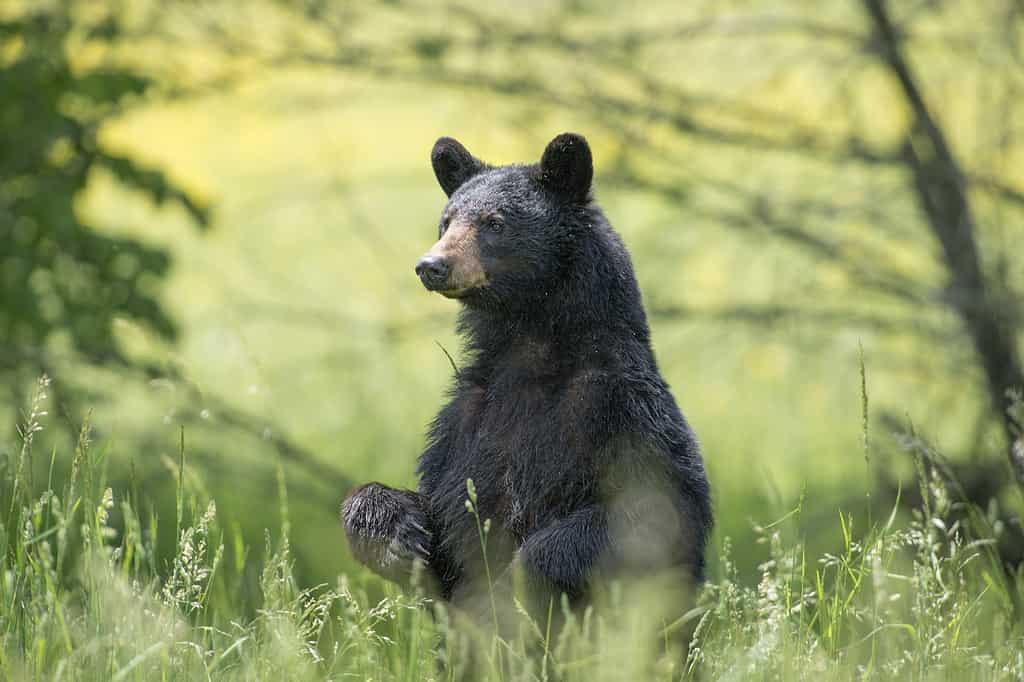
Bear encounters are possible at some zoos, but there is no touching or feeding the animals.
©Wirestock/iStock via Getty Images
N.J. residents will likely see a bear at some point in their life. Encounters are infrequent, but evidence of bear activity is high when living in wooded areas.
It is important to follow these guidelines in case of a black bear encounter:
- Do not run: Bears instinctively think a fleeing object is prey and will chase after it. Black bears can run 30 mph and can easily catch a fleeing human.
- No eye contact: Bears see eye contact as a form of aggression or challenge. Avoid eye contact by looking at the ground, the trees, or specific parts of the bear’s body like arms or legs to keep the animal in sight without provoking any aggressive instincts.
- Do not climb trees: Black bears are excellent climbers and will catch a human trying to escape by climbing a tree.
- Do not approach: When seeing a black bear, do not approach them. Keep a safe distance and avoid any desire to interact with them. Wild animals are unpredictable and can cause severe injury when accidentally provoked. This is especially important for cubs in the area. Do not approach, go near, or stay in the area if bear cubs are around because it means a protective mother is nearby.
- Look big and make sounds: Bears will huff, slam the ground, and roar to intimidate rivals for territory. During a bear encounter, people should make themselves look as big as possible while making a lot of noise. Bang pans together, yell, anything to show the bear the human is a larger predator. Lifting a jacket above one’s head or holding several objects is sufficient. Black bears prefer to run away rather than fight a larger predator.
- Report the encounter: When the situation has settled, call the authorities to report the bear encounter in rural areas.
- Secure Containers: Secure garbage cans or dumpsters with strong locks to deter bears from foraging in the area.
Black bears are most common in North Jersey in heavily wooded areas like Sussex, Morris, and Warren counties, but bears are found throughout the entire state. Use caution when encountering bears and report any bears to the proper authorities to keep both humans and animals safe.
The photo featured at the top of this post is © steverts/iStock via Getty Images
Thank you for reading! Have some feedback for us? Contact the AZ Animals editorial team.




